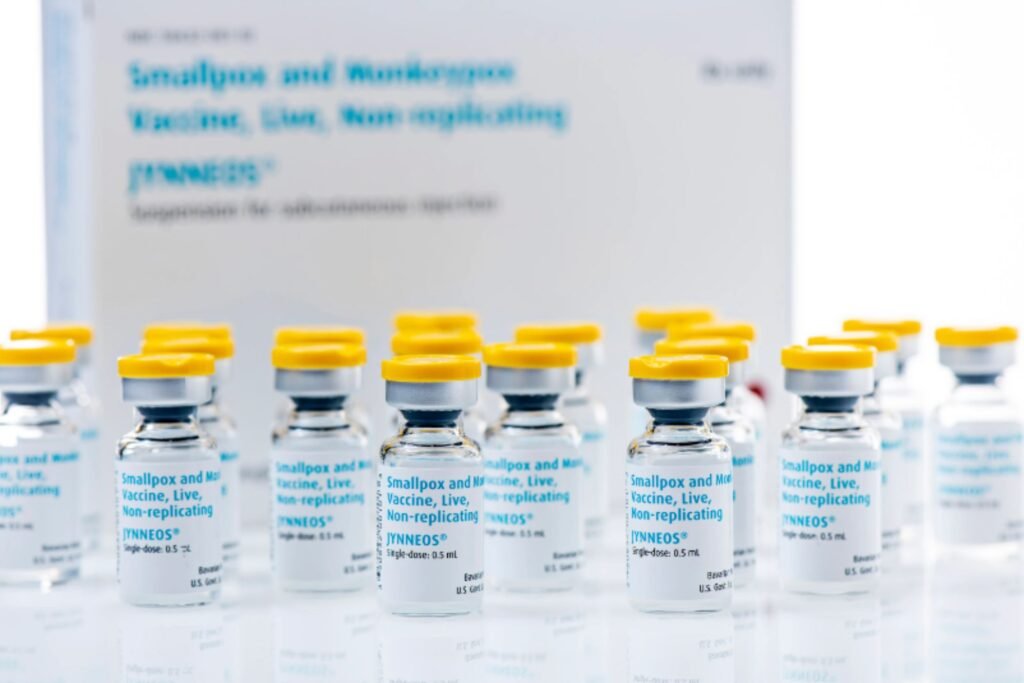(Source-healthpolicy-watch.news)
A New Epidemic Threat
Just as African nations began to recover from the devastating impact of the Covid-19 pandemic, another health crisis looms on the horizon: Mpox. This viral disease, once considered rare, is now sparking fears across the continent as access to Mpox vaccine, tests, and treatments remains inadequate. Experts warn that Africa could be facing yet another uphill battle in the fight against infectious diseases, with the continent already seeing an alarming rise in outbreaks—more than 100 annually. The World Health Organization (WHO) has identified Africa as the most susceptible continent to infectious disease outbreaks, and the current situation with Mpox only reinforces that assessment.
The ongoing Mpox outbreak in Africa has seen a staggering increase of over 160 percent in cases compared to last year. According to data from the Africa Centre for Disease Control and Prevention (CDC), 15 African countries—including Burundi, Cameroon, Ghana, Nigeria, and Kenya—are reporting the majority of these cases. The Democratic Republic of Congo (DRC) has been particularly hard-hit, with over 13,791 cases and 450 deaths. Despite this, efforts to contain the virus in the DRC have been severely hampered by a lack of vaccines. The DRC has approved two Mpox vaccines, but access remains limited, with only 50,000 doses available for a population of over 99 million people.
Vaccine Inequity and Global Responses
The situation in the DRC highlights a troubling pattern: while wealthy countries like the United States have quickly stockpiled Mpox vaccines, African nations struggle to secure adequate supplies. Despite the DRC’s approval of two vaccines, the country continues to face significant challenges in distribution and access. The United States has committed to providing enough doses to vaccinate 25,000 people in the DRC, but these vaccines have yet to arrive. Japan has also pledged support, but the slow pace of vaccine delivery is a growing concern.
Dr. Patrick Amoth, Kenya’s Director-General of Health, has noted that vaccines are still not available in many African countries, including Kenya. He explained that while there is no specific treatment for Mpox, healthcare providers are treating symptoms with existing medications. The lack of vaccines is particularly troubling in countries like South Africa, where approval is still pending, and resources to distribute vaccines are scarce.
Challenges in Containment and Surveillance
In Mombasa County, Kenya, health officials are struggling to trace contacts of infected individuals due to shortages of protective gear, drugs, and essential materials. Dr. Swabah Omar, County Executive Committee member at the Department of Health Services in Mombasa, highlighted the difficulties in managing the outbreak, emphasizing the need for more resources and support. The WHO has stressed the importance of efficient handling of infections and contacts to prevent the spread of Mpox. However, without widespread vaccination, the risk of continued transmission remains high.
Calls for Urgent Action
Aggrey Aluso, Africa Director of the Pandemic Action Network, has called for African countries to stockpile emergency supplies and reduce response times during health crises. The Africa CDC has received emergency funding of Ksh1.3 billion ($10.4 million) from the African Union to combat the Mpox vaccine outbreak. This funding will support surveillance, laboratory testing, genomic sequencing, case management, and vaccine distribution across the continent.
WHO Director-General Tedros Ghebreyesus has urged for more global support to interrupt the transmission of Mpox. He is considering convening an International Health Regulations Emergency Committee to assess whether the outbreak should be declared a public health emergency of international concern. A new research consortium, MpoxReC, has also been established to address the surge in Mpox cases and is urgently seeking funding to support research and mitigation efforts across Mpox-endemic countries.
As Africa faces the growing threat of Mpox, the need for swift and equitable access to Mpox vaccine and treatments is more critical than ever. The lessons learned from the Covid-19 pandemic must be applied to ensure that the continent is better prepared to handle future outbreaks. Public health measures, including surveillance, community engagement, and targeted vaccination, are essential to containing this virus and preventing further loss of life.









